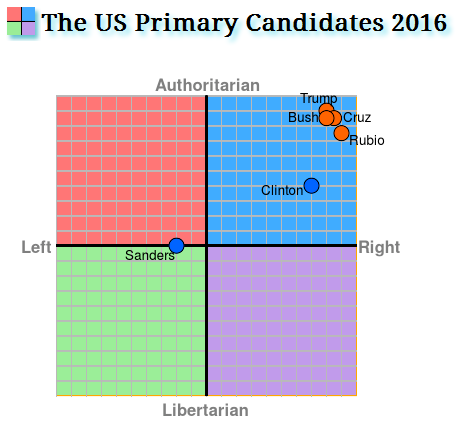Rough interview raises awkward questions for Sanders campaign
04/06/16 08:53 AM—Updated 04/06/16 09:10 AM
If you talk privately to Hillary Clinton campaign aides, one of the more common complaints is that Bernie Sanders just hasn’t faced enough scrutiny. It’s ironic, in a way – Sanders supporters generally argue the Vermont senator doesn’t get enough attention from the national media, and in a way, Team Clinton agrees.
As the argument goes, much of the political world has treated Sanders as a protest candidate, who’s serious about putting his ideas in the spotlight, but less serious about actually winning the presidency – a dynamic Sanders’ own campaign
has conceded was largely true at the start of the race. The result has been less scrutiny and a less robust examination.
Whether you find these concerns compelling or not, Sanders’ Democratic critics embraced
this Sanders interview with the editorial board of the
New York Daily News with the kind of enthusiasm we haven’t seen all cycle.
The Atlantic’s David Graham
helped explain why.
There’s little doubting Bernie Sanders’s core political convictions – he’s been saying the same things for decades, with remarkable consistency. But turning convictions into policy is the challenge, and the Vermont senator’s interview with the editorial board of the New York Daily News raises some questions about his policy chops.
Throughout his interview, Sanders seemed taken aback when he was pressed on policy – and not just on the matters that are peripheral to his approach, like the Israeli-Palestinian conflict or interrogation of detainees, but even on bread-and-butter matters like breaking up the big banks, the Democratic presidential hopeful came across as tentative, unprepared, or unaware.
It’s easy to overstate these things. A
Washington Post piece called the interview, conducted on Monday and published yesterday, a “
disaster.” A writer at
Politico argued that when Sanders was pressed for specifics on trade and jobs, the senator was “not much better than Trump in his cluelessness.”
I wouldn’t go that far, but it’s not unfair to note that the
Daily News interview raised concerns about Sanders that the Vermonter has largely avoided after nearly a year on the campaign trail.
If the senator had flubbed a question or two, struggling with details on obscure areas outside his wheelhouse, it wouldn’t have made much of a ripple. But as Jonathan Capehart
noted, this happened more than once or twice in this interview. Asked about breaking up the big banks, Sanders wasn’t sure about the Fed’s authority, or the administration’s. Asked about court fights over too-big-to-fail measures, Sanders conceded, “It’s something I have not studied, honestly, the legal implications of that.”
There were a few too many similar answers. On negotiations between Israelis and Palestinians, Sanders said, “You’re asking me a very fair question, and if I had some paper in front of me, I would give you a better answer.” Asked whether the Obama administration is pursuing the right policy towards ISIS, he responded, “I don’t know the answer to that.” Asked about interrogations of ISIS leaders, Sanders said, “Actually I haven’t thought about it a whole lot.”
This is a sampling. There were other related exchanges. They were not encouraging.
For Sanders’ supporters, I suspect the response is that the senator is leading a revolution by emphasizing broad themes and identifying systemic crises. Presidents don’t need to know a lot of specific details, the argument goes, so much as they need to establish clear goals.
For Sanders’ detractors, meanwhile, it’s likely this interview was evidence that Sanders’ understanding of major issues is, at best, superficial. Bill Clinton and Barack Obama are technocratic wonks, fluent in granular policy details on a wide range of issues, and Sanders just isn’t in their league when it comes to knowledge, preparation, and breadth of expertise.
Obviously, observers will make up their own minds about the significance of the interview. But as an objective matter, Sanders is just now facing the kind of questions he’s avoided for months: there’s no doubt the senator has a clear vision and the ability to inspire his supporters to follow his lead, but how much does he know about implementing his goals? Sanders can paint beautifully with a broad brush, but how prepared is he when it comes to the unglamorous work of governing?
If the senator and his campaign have good answers to these questions, now would be an excellent time to offer them.





 Their alter-egos?
Their alter-egos?





